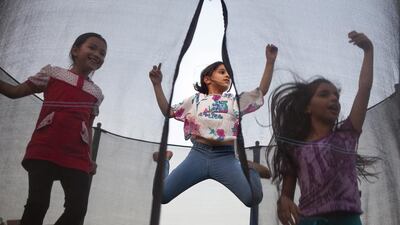Sibling rivalry is one of the issues that disrupts many parents’ lives upon the birth of their second child. With every fight or disagreement between siblings, parents get anxious, stressed and worried about their children’s relationships with each other.
Every mother or father dreams of a peaceful day with no shouting or yelling, and to see their children playing with each other without calling a parent to resolve a conflict between them.
Although this looks beautiful and peaceful, it is not normal. Having a calm sibling relationship is also not beneficial for children. According to research, sibling rivalry is an absolutely normal phenomenon and can be a potentially useful learning opportunity for children. It occurs in every house regardless of the number of children and the family’s status.
Sibling rivalry usually starts when the second child arrives. With every new member of the family, children may feel threatened because of the attention their siblings get from the parents.
In “Parenting Your Children Beyond Sibling Rivalry”, one of a series of public parenting workshops organised by the Salama bint Hamdan Al Nahyan Foundation, Dr Michael Kaplan, assistant clinical professor at the Yale Child Study Centre, talked about the importance of parents understanding their children.
According to studies, the root cause of sibling rivalry is the fact that there’s a limit to the love, attention and affection that parents can express for each of their children at any one time. With each new baby, the amount of individual affection each child can receive decreases. Thus, children try in their own way to seek their parents’ attention and their methods include fighting with their siblings.
Our relationships with our siblings are among the longest we will have in our lives. Some siblings welcome us when we come into the world and others give us joy when they join the family. But, unlike friends, we cannot choose our siblings.
According to studies, the sibling relationship is a template for the many relationships we will have outside the family context. It helps us to understand values such as compassion, cooperation, empathy and sharing.
All siblings have a love-hate relationship. Sometimes you can see your children show hostility towards each other; at other times, you can enjoy the warmth, cooperation and social and emotional support they give each other. They become life coaches for each other.
Unfortunately, many parents use easy solutions that provide them with a peaceful afternoon without any conflict. For example, it has become a common solution for families to provide an iPad to each child so that they don’t fight over one device and annoy their parents. This solution might be tempting, but what parents should keep in mind is that having one iPad among the siblings can teach them key skills – of sharing, negotiation and resolving conflict without the interference of other parties.
Research shows that siblings make for a unique human relationship. According to Dr Kaplan, siblings form strong support systems if there is family conflict because of common stress factors and experiences. Also, the normal competition that exists among siblings can become an inspiration. The younger child may look up to their older siblings and try to be like them or even better.
How can we, as parents, help our children have the benefits of this amazing relationship and not turn it into a harmful and abusive one? It is important for the parents to have a common vision and shared value system to create a healthy environment for their children.
According to Dr Kaplan, chaotic houses where there are marital problems tend to create stressed and anxious children, which in turn, creates sibling conflict and abuse.
It is important for parents to understand the reason behind the aggression in their children’s relationships with each other. Sibling rivalry is not a bad thing, it is a learning experience that prepares children for the real world.
As parents, we should always do our best to be patient and understanding and to provide a healthy environment that will prevent our children’s relationships becoming abusive and harmful. We should create a positive lifelong learning experience.
Saeeda Husain Almarzooqi is a Shamsa bint Mohammed Al Nahyan early childhood development fellow with the Salama bint Hamdan Al Nahyan Foundation

